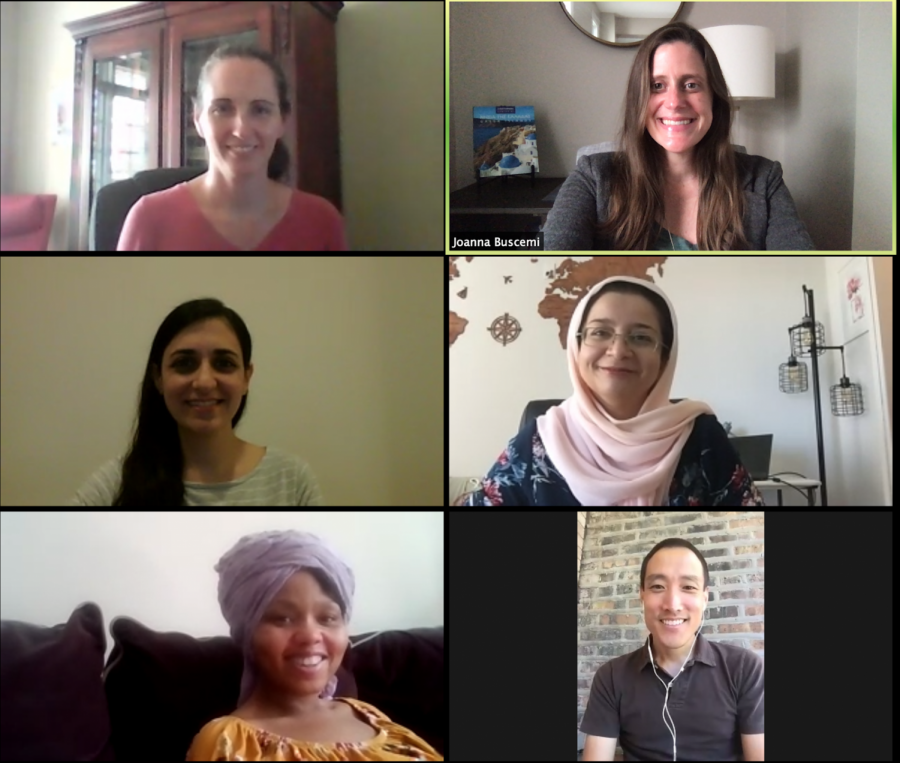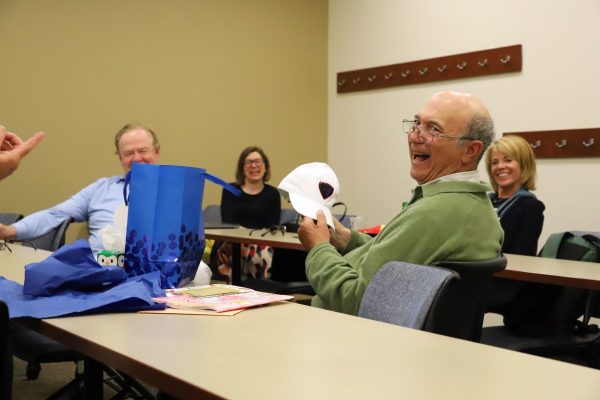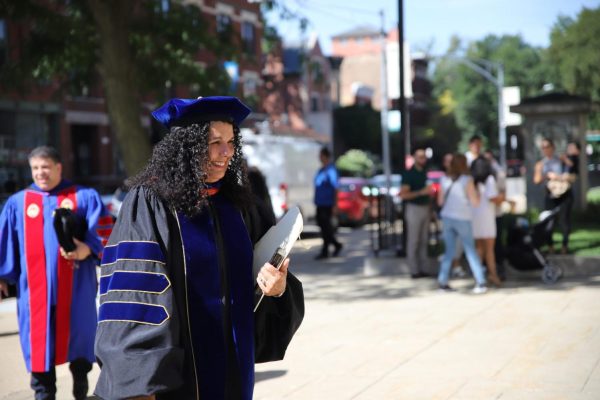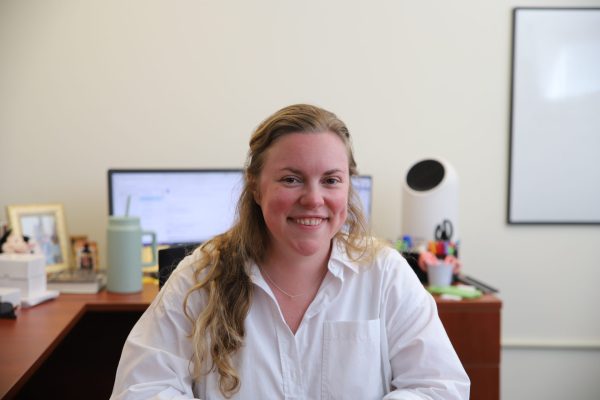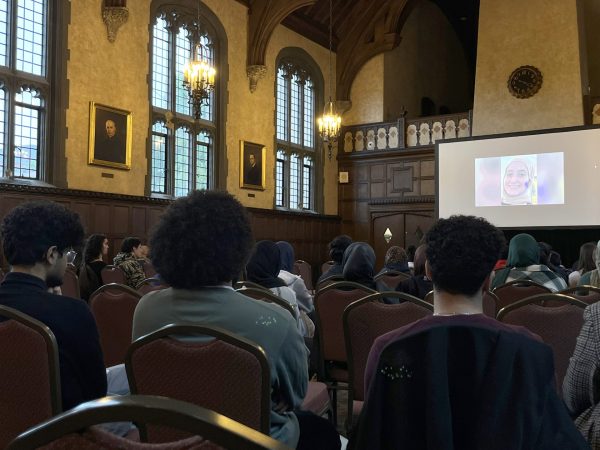University announces research collaboration with Sinai Health Systems
Credit: Photo courtesy of Joanna Buscemi /The DePaulia
The Sinai Urban Health Institute-DePaul University Research Fellows meet remotely each week to discuss progress on their manuscripts as part of the Unequal Cities project, a comprehensive research initiative to study city-level mortality rates and racial inequities among the 30 most populous U.S. cities. . Meeting via Zoom in mid-August were, clockwise from top left: Maureen Benjamins, senior research fellow, SUHI; Joanna Buscemi, assistant professor of psychology, DePaul; Fereshteh Ghahramani, assistant professor of information systems and computer security, DePaul; Daniel Schober, assistant professor of public health, DePaul; Karyn Stewart, assistant professor of sociology, DePaul; and Nazia Saiyed, epidemiologist, SUHI. Not pictured, Julia Lippert, assistant professor of health sciences, DePaul.
DePaul University and Sinai Health Systems have announced a collaboration between researchers at each institution to address social and health inequities in the city, and eventually create a community-based research institute, per a Sept. 1 Newsline release.
“Sinai and DePaul both share more than a century of commitment to serving Chicago,” Karen Teitelbaum, president and CEO of Sinai Health System said in the announcement. “We have already been working together with DePaul to train the next generation of health providers. This collaboration is an extension of our shared mission to understand the needs of our communities and develop people and programs that will offer real solutions to address inequity and move the needle for social justice.”
This collaboration furthers the relationship established by the inaugural Sinai Urban Health Institute-DePaul Research Fellows program that began in April.
SUHI President Helen Margellos-Anast said the initial memorandum of understanding signed by the institution was for a five-year period, but she hopes the collaboration will last “well beyond” that time frame.
SUHI’s Senior Research Fellow Dr. Maureen Benjamins will be leading the partnership alongside Margellos-Anast. Several other researchers from SUHI will also be participating, and a joint advisory committee of members from each will be developed to oversee the institution.
Donna Badowski, associate director of the RN to MS program in the School of Nursing; Elissa Foster, graduate program director of health communication in the College of Communication; and John Mazzeo, director of the master’s of public health program, will be the three faculty members representing DePaul on the committee.
Researchers participating in the collaboration will use “solutions-focused” research in order to address such inequities.
Margellos-Anast said “true partnership” is needed “in co-developing solutions that are most likely to have an impact.”
“Our intent goes beyond documenting that there are disparities, to digging in to better understand the underlying factors (i.e., the root causes) of health inequities, and then, to develop, implement and assess the impact of new interventions and/or policies to address those inequities,” Margellos-Anast said.
According to Newsline, both institutions will “share applicable public health data and online resources, as well as technical expertise.” Students will also have an opportunity to participate in the collaboration. Joint research and grant applications will be pursued in addition to the collaborative research opportunities.
Margellos-Anast said that while current funding comes from each institution, they plan to seek out further funding to support future efforts.
“As we move forward, our goal is to secure additional philanthropic funding in the coming months that will allow us to support the structure of the Center, and to also begin pursuing research funding that aligns with our goals,” she said.
“This is envisioned as a long-term collaboration between the two institutions that will spearhead new curriculum, research, and innovation opportunities across multiple disciplines,” said Daniela Stan Raicu, DePaul associate provost for research. “Both partner institutions are bringing existing resources to the collaboration and seeking opportunities for additional funding.”
Margellos-Anast said a collaboration with an academic institution will further Sinai’s ability to integrate solutions with information from “expertise in specific disciplines” provided by DePaul.
“By working with DePaul, we will have the ability to quickly leverage that sort of expertise to build the sorts of solutions that are likely to have a real and lasting impact,” Margellos-Anast said. “We are also interested in the teaching side, and [in] enhancing opportunities for faculty and students, to learn from the real experts, the community members, and to be involved in participatory action research efforts.”


